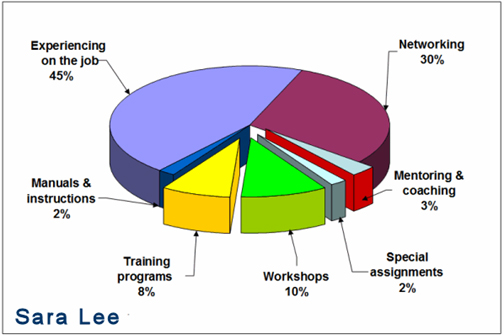“It’s critical that training and development professionals not go overboard with command and control when they support informal learning. If they do they are likely to kill it. And since informal learning makes up the bulk of learning inside organizations, this could be a truly perilous move.” ~ Patti Shank, Director of Research at The eLearning Guild
How can we define informal learning?
Michael Eraut, professor of education at the University of Sussex Institute of Education in the UK, says that we often treat informal learning as a ‘leftover’ to describe learning that “does not take place within, or follow from, a formally organised learning programme or event.”
Eraut explains informal by defining what it is not, i.e. by defining “formal learning” as having any of the following: a prescribed learning framework; an organized learning event or package; the presence of a designated teacher or trainer; the award of a qualification or credit; the external specification of outcome. Patti Shank, Director of Research at The eLearning Guild, provides a better definition (what it is rather than what it is not!) – a definition adapted from Saul Carliner’s book, Informal Learning Basics: informal learning includes situations where the learner determines some or all combinations of the process, location, purpose, and content, and may or may not even be aware that instruction has occurred.
Workers rely most on informal learning
According to The eLearning Guild Research Library, studies show informal learning as a proportion of all workplace learning at more than 50% to 80%, and research shows that many workers say that informal workplace learning is far more important to them than workplace training programs.
Given this information we can conclude that it’s of vital important that companies support informal learning and assume new roles, including managing organizational knowledge and coaching. In the graphic below for example, Sara Lee sales and marketing representatives, management and the HR department were asked to rate the importance of a number of workplace learning activities – job experience and networking were highest on the list.
Managers of training and development functions need to make strategic decisions about the direction their department will take in regards to informal learning and how they will support it. For more, download the full eLearning Guild report which examines informal workplace learning, and offers guidance on how companies can make it work for them.
About the author: Roberta Gogos is a Social Media and Content Strategist who contributes to a number of blogs, focusing on social media, culture-specific communication, collaboration, elearning and social learning. She can be contacted on LinkedIn or Twitter.



